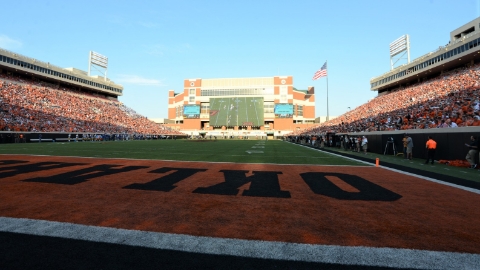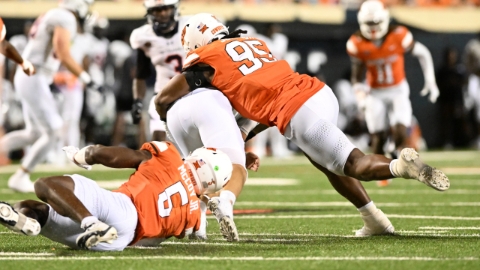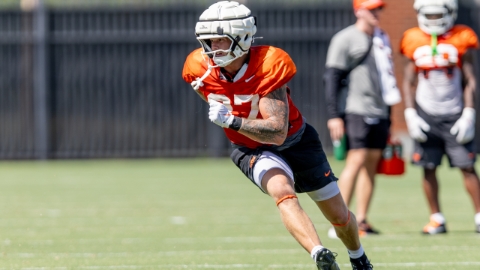No Disagreement Here, but the New Model for the CFP Is a Steamroller
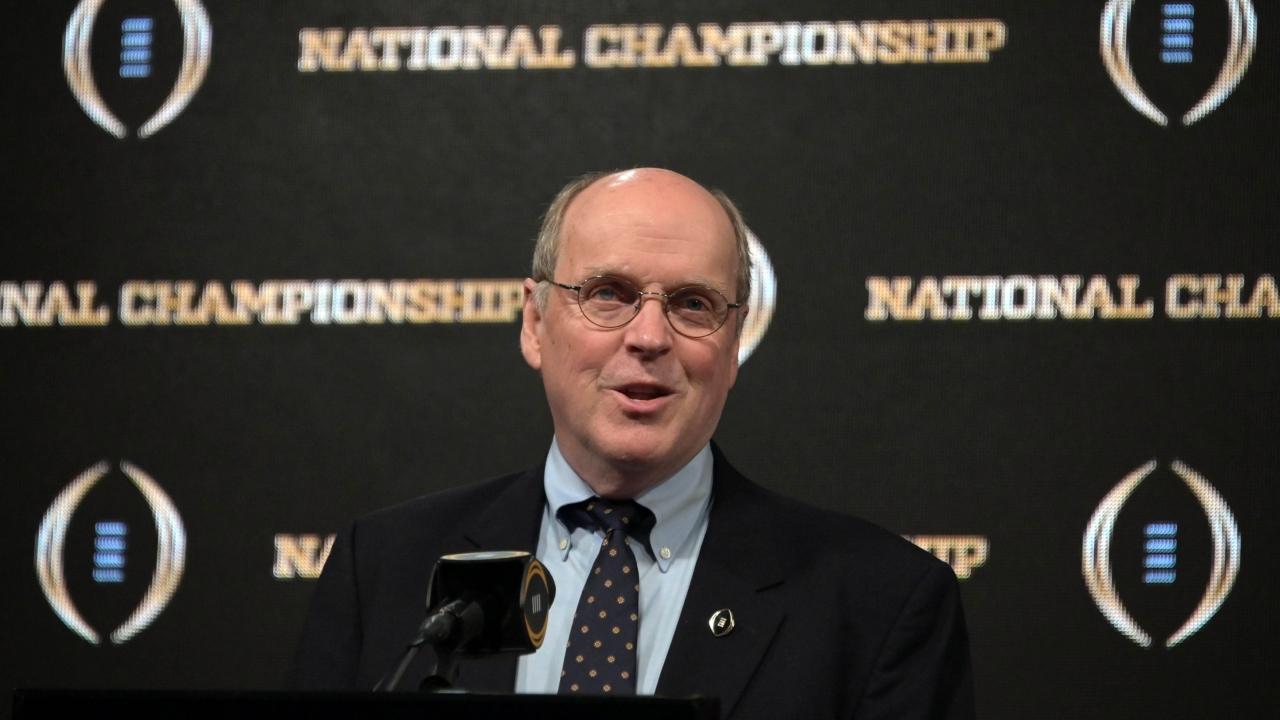
STILLWATER – Over the past two days in Chicago, Ill. inside the Big Ten offices, the future of college football was continuing to be played out. Since the “working group” consisting of conference commissioners Bob Bowlsby (Big 12), Greg Sankey (SEC), Craig Thompson (Mountain West) and Notre Dame athletic director Jack Swarbrick first announced the new proposed format to expand the College Football Playoff every entity in the sport has been weighing in. In Chicago the other conference commissioners that form the CFP management committee got their deep dive into the proposed format and had their questions answered.
The proposal calls for the bracket each year to include the six highest-ranked conference champions, plus the six highest-ranked other teams as determined by the College Football Playoff selection committee. No conference would qualify automatically and there would be no limit on the number of participants from a conference.
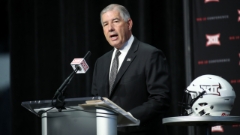
Under the proposal, the four highest-ranked conference champions would be seeded one through four and each would receive a first-round bye, while teams seeded five through 12 would play each other in the first round on the home field of the higher-ranked team. (The team ranked #5 would host #12; team #6 would meet team #11; team #7 would play team #10; and team #8 would meet #9.) The quarterfinals, Playoff Semifinals and national championship game would be played at neutral sites.
The other commissioners include Mike Aresco of the American Athletic Conference, Keith Gill from the Sun Belt Conference, Judy MacLeod is commissioner of Conference USA, Jim Phillips from the Atlantic Coast Conference; Greg Sankey, Larry Scott outgoing commissioner of the Pacific-12 Conference; Jon Steinbrecher is from the Mid-American Conference, Kevin Warren of the Big Ten Conference. Bowlsby, Sankey, Swarbrick, and Thompson were there as well.
“Remember, the four people have been in this for two years and the other seven commissioners have been in it and the discussion and in the know for about a week,” CFP executive director Bill Hancock said in a Friday teleconference and question and answer. “And I think the biggest thing that kept coming up was we just need time to review this with our folks back on campus. And I think that was probably the biggest thing, just we need time for more input.”
Let’s cut to the chase a little bit here. You don’t roll out and create as much buzz about a proposal unless you have a pretty confident attitude that it is going to withstand the scrutiny. People like Bill Hancock and the four members of the “working group” don’t announce proposals that fail, not very often, if ever.
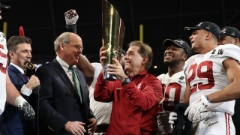
That follows along with the comments that Hancock made in the press conference and teleconference as the meeting dismissed on Friday.
“Generally, the people in the room liked what they saw. Realizing that they had not yet received the input from their folks on campus,” Hancock said. “But I think generally the first impression was that the working committee, working group did a great job and we're pretty happy with what they came up with. But, again, I can't not overemphasize how important it is to get the feedback from the key folks on campus -- student-athletes, coaches, presidents, ADs. That's the most important next step.
That sentiment was repeated over and over by Hancock in answering questions. Everybody wants to take it back to campus and have the front liners in coaches and players to look at it. They want the important folks on campus to see it and get a feel for it.
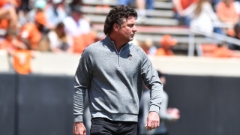
I can tell you Mike Gundy at Oklahoma State loves it. He will question the extra games, but he wanted expansion to give his program better access to getting in the playoff. He wants more opportunity for teams like his to have a chance.
Hancock did not say anything, but earlier this week Big 12 Commissioner Bob Bowlsby was confident that next weeks gather of the CFP Board of Managers would give the working group and the CFP permission to move forward.
Hancock has already ruled out any changes in the CFP until after the 2022 season. Then it would take two groups that work closely with the CFP to jump in and cooperate. ESPN would need to agree to bring out more dollars to the extend their television rights to the CFP for an extension or totally new contract. ESPN has the exclusive rights to the CFP during this initial 12-year period.
The other group that would have to sign off as an active participant is the college bowl community. The CFP wants to keep the bowls tied in. The four games on New Year’s Day or adjacent days in a year where that holiday is on a Sunday, are imperative to be involved. Then the semifinals are likely to be in bowl games as well.
“The group didn't talk about it today, but the working group talked about it at length” Hancock said. “We don't know who the six bowls might be if the format goes through. That will be determined later. In my mind the six bowls that will be a part of this will be delighted to be part of it.”
No, ESPN was not sitting in the middle of the room, but if you think they are anything other than totally tied on to what is going on then think again. Hancock was asked point blank about the whether the Worldwide Leader was in Chicago.
No, they weren't involved. They know what's happening, of course. Everybody in college football knows what's happening. But they have not been involved.
They will be soon, have to be. My prediction is that as soon as the Governing Board, the Presidents say they like it on June 22 in Dallas then the negotiations begin. That will be the long run on getting this done, but they have another two-year period and that should be more than enough.
The change is coming and it will be here for 2023.
